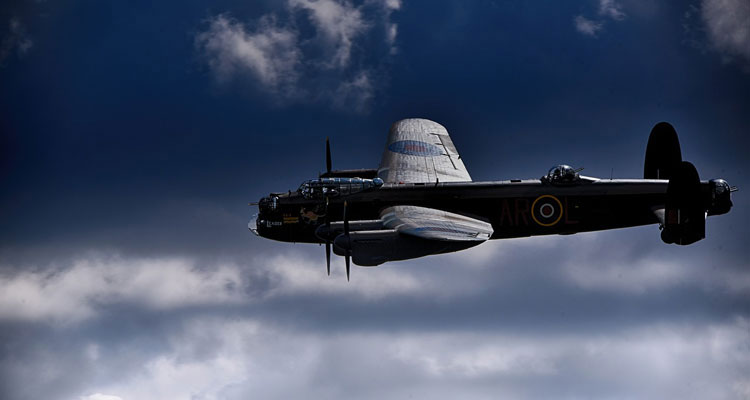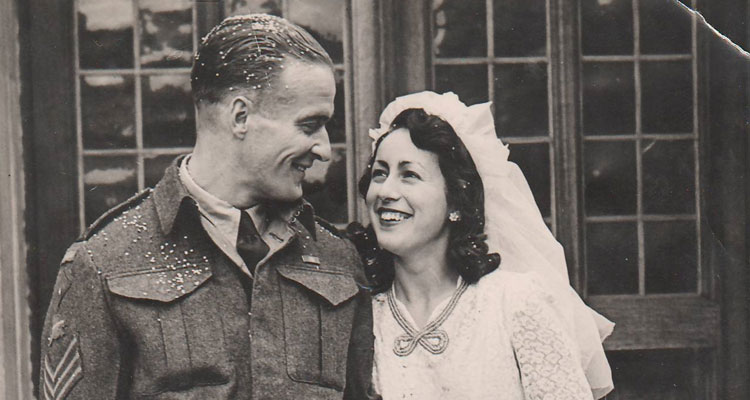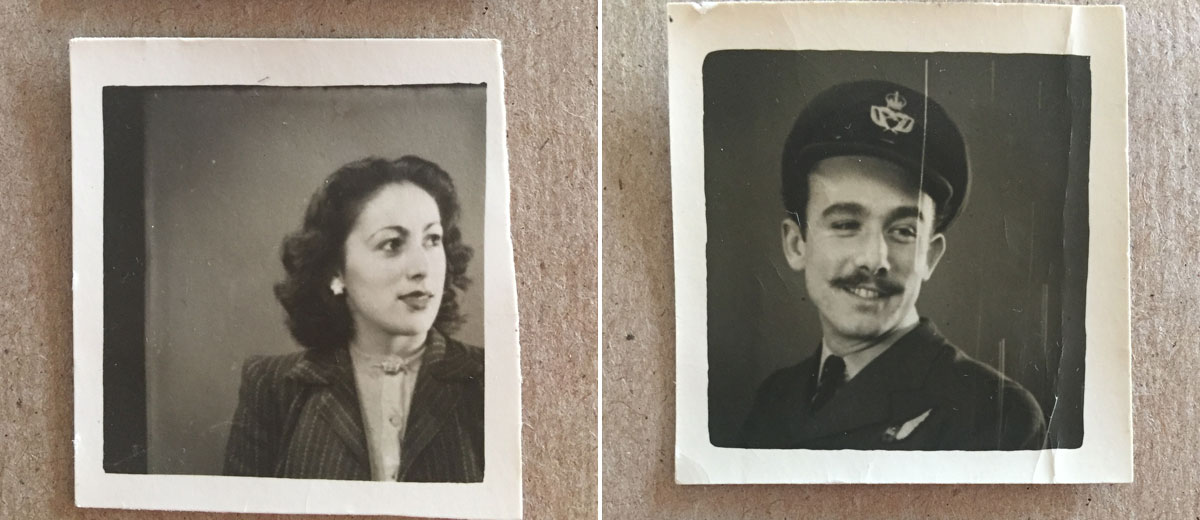“If God Should Take Us, then Let Us Go Together.”
Pauline Ament was 13 years old when England and her Commonwealth allies, including Canada, declared war on Adolf Hitler and his Nazi German troops. During the teenage years when a girl loves to laugh, live, and have fun, Ament grew up with nightly air raids, watched the Battle of Britain play out in her backyard, endured the effects of heavy bombing, and learned how to laugh when her heart hurt.
When the war first started in 1939, Pauline was most concerned how it affected her daily school schedule and the gag-worthy gas mask she was required to wear and learn to use. She and her younger brother Peter would trudge to school, lunch box on one shoulder and gas mask on the other; after opening prayers, they had a gas-mask drill.
“They were terrible, those gas masks, they were the worst part of the war it seemed.” Seventy–eight years later, Ament still pulled a face while remembering the rubbery, almost suffocating masks each child was expected to learn how to wear in case of a German chemical raid. The raid never came, but the British children were still never allowed to leave their home without a mask.
As Ament grew, so did the intensity of the war. The Battle of Britain, a deadly, desperate air-struggle between Britain and Germany for the control of the island country, lasted from July 10 to October 31, 1940. Ament, who was in West Wickham, a bustling town of 20,000 just eight miles out of London, recalled watching battle after battle from the family’s garden. “The sky was black with planes, and every once and a while you would hear the crash of one hitting the ground. I never knew where they ended up.”

One battle has stuck fast in her memory, as she remembers looking up into the sky and seeing an airman parachuting out of a burning aircraft. “My mother cried out, ‘Oh the poor boy, I hope he doesn’t get shot!’ A neighbor of ours who was watching exclaimed that she didn’t care, because it was probably a ‘horrid German’. My mother looked straight at her and said ‘German or not; he still has someone who wants him to come home.’”
The anti-German feeling remained high during the war, but there were others, like Ament’s mother, who felt the injustice of war-affected Germany as well as England. Once Ament’s friend, a young woman named Elsie visited a POW (Prisoner of War) camp to exchange a packet of cigarettes for a German-crafted toy made by the POWs living in the camp. Ament went with her to watch. “Elsie handed a POW a pack of cigarettes through the fence, and the man handed her son a wooden toy. Elsie’s boy said ‘thank you,’ and the man reached through the fence and put his hand on the boy’s head, ‘I have a boy like you back home,’ he said so sadly that I couldn’t bear it, so I left, fighting back tears.”
Memories weren’t always so soft towards the opposing army, as Ament recalled the terrible nights and weeks of constant bombing. “Once we didn’t go to bed for four nights in a row, we were being bombed so hard, we spent our nights crouching in shelters, either our own in the backyard or public ones in the park close by. My father said my mother slept with one foot on the floor, ready to spring up and head for the shelter.”
Despite the constant terror and uncertainty, the Aments never considered sending their children away; “if God should take us, then let us go together,” Mrs. Palmer would say. They very nearly were taken together as the Palmer house was bombed twice; the first time took the roof, doors, and windows clean off the home, leaving the Palmer family shaken and homeless, but alive.

The second time carried a humorous moment in the family. Ament’s mother was set on keeping a clean and lovely home, even during the war; her curtains, white and sheer, were the pride of her heart. One night, just as she put up new curtains in the kitchen, an air raid forced the family into their shelter. When they returned in the morning, the windows were sucked out of the home, and with them, the brand-new curtains. That was the final straw for Ament’s normally soft-spoken mother; Ament says she stared, mouth agape as her mother used the first swear-word Pauline had ever heard her say; Mrs. Palmer ended it off with “Those nasty Germans took my curtains!”
War wasn’t all horror and grief, sometimes Ament’s older brother, Kenneth, a rear gunner for a Catalina Flyboat, would come home on leave and take Ament for explorations of London, to the “pictures” or dances held in London. Other times, when the family would hide in the public shelter, they would turn their hideout into a sort of party. “It would be jolly; people would sing and play music, we learned to laugh down there while bombs landed above us. You see, life couldn’t stop, you had to laugh, and you had to carry on, you would go crazy if you didn’t.”
If there was one good thing for battle-weary Britain, it was how the war pulled her people together. “British people are world-known for their aloofness, but the war took care of that. People from all classes hid together in bomb shelters and helped each other dug out from an air-raid, Britain pulled together, and her people were made stronger because of it.”

Pauline Ament married a Canadian soldier, Lloyd “Sparky” Ament, and returned with him to Kindersley. Now widowed, she lives on with the memories of the war, and she is indeed the stronger for it.
Feature Image: Ament and her older brother Kenneth went to get their picture taken on a whim while Kenneth was on leave. Ament was 16 years old at the time of the photo. – Originals submitted by Pauline Ament, Photo by Mallorie Rast/Kindersley Social
For the latest information and for more updates on everything Kindersley ‘Like’ the Kindersley Social Facebook page below…
